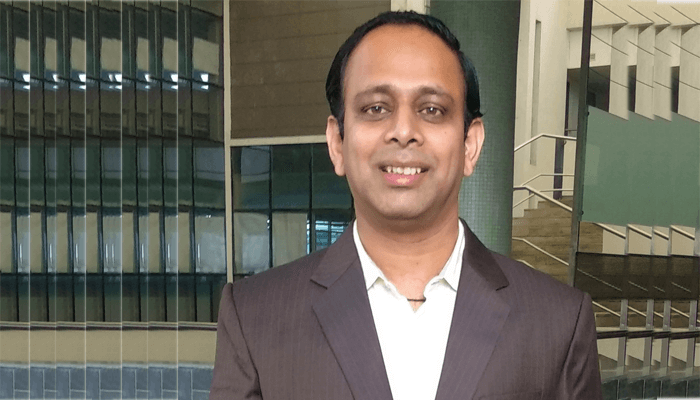IIITH researchers propose a novel cryptographic method of polling that not only meets all the required criteria of a fair and secure electoral process but is also geared for large democracies.
Thanks to the success of Bitcoin, blockchain’s early use case was primarily of conducting financial transactions. It is now well recognised though that any kind of data transmission can take place online in a secure manner. With its potential to improve existing systems, blockchain technology is being used in a wide variety of industries such as healthcare, smart contracts, crowdfunding and more recently even governance. Back in 2018, a few countries like Sierra Leone, the Japanese city of Tsukuba and more recently in the US presidential election of 2020, Utah county have already taken the plunge and experimented with blockchain-based e-voting. Closer home, the 2024 Lok Sabha elections is also slated to witness a revamp in the electoral process with the introduction of e-voting.

What Every Democracy Needs
The goal of every democracy is to ensure a fair and transparent voting process. For this, there are certain criteria that need to be fulfilled. One, the voter identity needs to be kept confidential by ensuring anonymity of the voters. In addition to this, the votes must be concealed and once cast, unalterable. And finally, there ought to be no scope for multiple voting. By meeting these criteria, blockchain-based e-voting fixes many of the challenges that are typically faced in a traditional as well as electronic balloting system. According to Dr. Sujit Gujar, Machine Learning Lab, IIITH, a literature survey however revealed that while there are a lot of blockchain-based balloting solutions satisfying all the four criteria, there are none that can be simultaneously scaled for the likes of India’s populace. In a research paper titled, “FASTEN: Fair and Secure Distributed Voting Using Smart Contracts” that was presented at the 2021 IEEE International Conference on Blockchain and Cryptocurrency, Dr. Gujar led his students Sankarshan Damle and Moin Hussain Moti to propose a blockchain-based solution that would not only tick all the boxes for a fair election but also be simple and scalable.

How It Is Secure
As per the team, the blockchain part of the polling process is set in motion when the voter wishes to cast a vote. Since the vote needs to be anonymised in such a way that it cannot be traced back to the voter, smart contracts host encryption keys. In order to cast your vote, you need to encrypt it and send it to the smart contract along with a token that serves as your secure identity. With the submission of the token, casting another encrypted vote is near impossible due to its association with the ‘agent’ or voter. Once the polling phase is over, all the encryption keys from the smart contract are taken in order to decrypt the votes. This will tell you the number of votes won by each candidate and also reveal the winner of the election.
How It is Scalable
For handling sensitive data, homomorphic encryption – a privacy-preserving method where computations are done on encrypted data without decrypting it – is being hailed as a “game changer”. This would perhaps be apt in a confidential balloting process when the final tally is being made. The IIITH team’s solution, on the other hand uses simple public key encryptions where decryption is distributed across the network. “With this being a distributed network, no single entity can cheat. Homomorphic encryptions are computationally very heavy. By using simpler public key cryptosystems, the process will also be quicker,” explains Dr. Gujar.

Commenting on solutions that don’t have a distributed network, Sankarshan says that they rely on something known as Zero-knowledge proofs (ZKPs). “ZKPs are computationally very expensive. We have distributed our trust in the network using blockchain and don’t require ZKPs. Therefore the system is fair.” Sankarshan, who is a Ripple-IIITH Fellow pursuing his PhD in blockchain research in partnership with Ripple Labs, explains further. In a bid to be scalable, most blockchain-based solutions don’t encrypt their votes. This explains why in countries like the US, voting results are broadcast live even as counting is underway. “When we know which candidate is in the lead, it is likely to influence other voters who are yet to cast their vote. Hence our solution doesn’t decrypt the votes until the elections are over and the final count is made public,” he says. The researchers are quick to point out that their system is simple enough to make sense to the common electorate too.
The technology certainly sounds promising and portends well for our collective future.




Next post